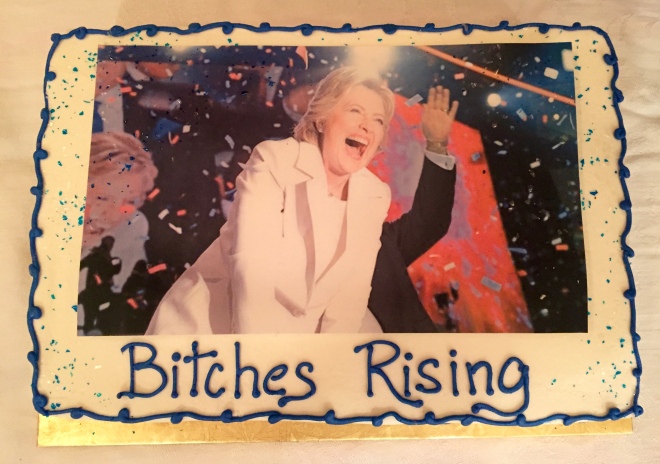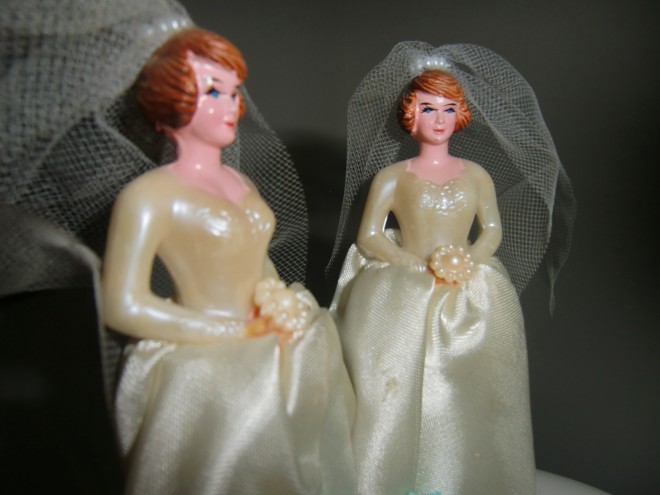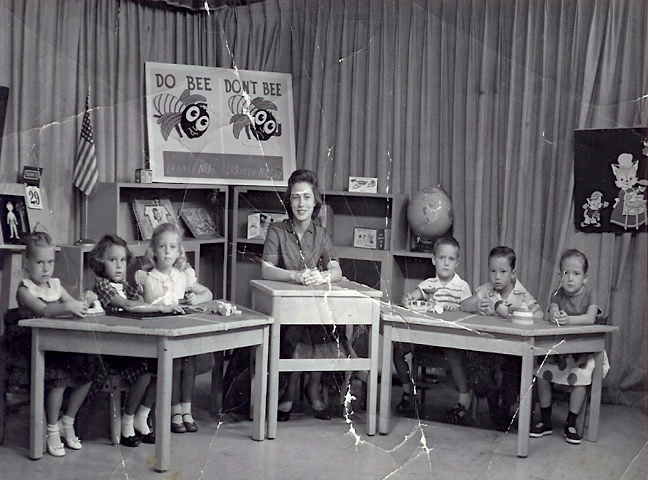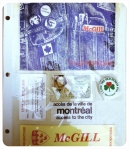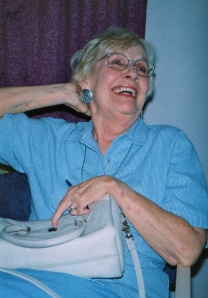After twelve days of bouncing around between and among numbness, outrage, horror, and sorrow, I had a dream last night that took me close to something like hope and happiness for the first time since election night. I share the details with you because I welcome your interpretive assistance and because I figure maybe you could use a glimpse of something like hope and happiness, too.
On the surface, the dream seems mostly to be about missed connections and lost opportunities. My partner and I are at Hillary Clinton’s inauguration. (See what I mean?) In one scene, I am trying to secure space for us to stand and watch the speech. She takes off with other friends. I don’t remember where they were headed, but I wasn’t upset about their leaving. They’ll be back. I have to do some negotiating with folks around me to save enough space, but that works out. I don’t think I dreamed the part where my partner returns and we listen to the speech. There’s a gap in the dream. In the next scene, we’re standing in line in a shop or cafe to get some kind of inauguration cake. It’s very crowded. We finally get up to the counter and the guy says, “Sorry, we’re not giving out anymore cake.” I can see they still have some. “Why not?” I ask. He shakes his head no. “We’re just not.”
So, yeah: Missed connections, lost opportunities, disappointment. The hopeful part actually came before everything I’ve just described, and I love it because it’s the goofy, wonderful, only-in-a-dream part.
In this earlier scene, my partner and I are together. I may be embellishing a bit here, but it seems to me we are on the steps of the Capitol, which is, of course, where presidential inaugurations take place. We are standing very close to the action, which (and this is the goofy, dreamy part) is taking place in a big beautiful pool – something like the Capitol’s reflecting pool only much deeper. The colors of this scene are gorgeous – the whiteness of the Capitol, the blueness of the pool and sky, the crystal clarity of the water as a bright yellow sun shines upon it. We are transfixed by what is happening in the pool, because Hillary Clinton is in it, riding a porpoise. (I swear I’m not embellishing that part.) We watch as she and the porpoise dive down into the water and then pop back up. She’s in a cerulean blue suit and wearing goggles, but when she comes to the surface her hair is still perfectly coiffed and her suit looks dry and ready for primetime. What I love most about the dream is the look on her face as she sits there astride the porpoise. She must have pulled off the goggles, because she gazes out at the crowd with a look of utter, head-to-soul delight. She smiles broadly and lets out a little whoop that recalls the brilliant “Woo, okay!” she uncorked with a shoulder shimmy in the first presidential debate. It is a Buddha’s smile of kindness, composure, and understanding. It is a smile that fully embraced the moment and all who stood with her in it. It is a smile to love, honor, trust, and emulate.
The dream was so vivid to me that I shared it with my partner as soon as I woke up, wanting to cement the details in my mind. A couple of hours later, I shared it with my yoga class because the election has been a preoccupation of ours for months, and we are all working through the heartbreak of Clinton’s Electoral College defeat. As it turned out, my teacher’s theme for this morning’s class was equanimity – as in, how to recover one’s sense of calmness and even-temperedness in the wake of something as unsettling as Clinton’s defeat and #NotMyPresident’s victory. (No, I will not use his name. You are safe from that here.) My dream and Natalie’s theme work beautifully together in a delightful instance of serendipity, for smiling Hillary astride her porpoise is a compelling image of equanimity. The porpoise carries her safely on a watery journey that transforms and prepares her for what lies ahead. At journey’s end, she is serene, happy, calm, and ready to face whatever comes.
Now, you could say I have falsified or done violence to my dream in rearranging the order of the parts I recall so that it ends in happiness rather than the disappointment of all those missed connections in the other scenes. Narratively, that may be true, though I’m not a hundred percent sure about the sequencing of the various scenes. Such details are always fuzzy in Dreamland. In any case, I would argue that my telling of it captures and emphasizes what is for me the emotional truth of the dream, which is all about resilience, equanimity, and the wisdom to be discovered through play (porpoises are playful, right?). I needed to glimpse that truth after nearly two weeks of feeling paralyzed by grief and uncertainty. I needed to be reminded that I have within me great reservoirs of strength and the skills I will need to navigate my own and my country’s future. I needed to bask in the light of that kind smile in order to reconnect with my compassion toward myself and all of the flawed, hurt, vulnerable beings with whom I share space and time.
I am not a religious person, but this dream came from a place so deep within myself that I might as well call it my soul, that place beneath or beyond rational thought that Emily Dickinson described as “Where the Meanings, are.” I will call it my Buddha Hillary dream, and I will think of it whenever I need to calm and refresh myself in the challenging days that lie ahead. I offer it to you, for whatever good it may do you as you travel along on your journey. May you also be accompanied by a helpful porpoise, and may Buddha Hillary smile on you, always.
Namaste, Bitches.

